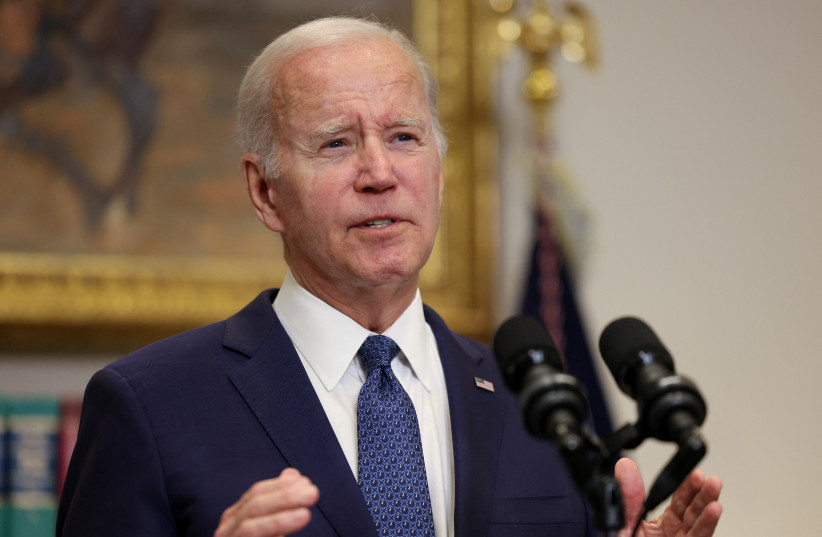US President Joe Biden on Tuesday honored Emmett Till, the Black teenager whose 1955 killing helped galvanize the Civil Rights movement, and his mother with a national monument spanning two states and a call for Americans to learn the country's full history.
Till, 14 and visiting from Chicago, was beaten, shot and mutilated in Money, Mississippi, on Aug. 28, 1955, four days after a 21-year-old white woman accused him of whistling at her. His body was dumped in a river.
The violent killing put a spotlight on the US civil rights cause after his mother, Mamie Till-Bradley, held an open-casket funeral and a photo of her son's badly disfigured body appeared in Black media.
The national monument designation across 5.7 acres (2.3 hectares) and three sites marks a forceful new effort by the president to memorialize the country's bloody racial history even as Republicans in some states push limits on how that past is taught.
"Darkness and denialism can hide much but they erase nothing," Biden told guests in the ornate, marble edged Indian Treaty Room next to the White House, before signing the proclamation. "We can't just choose to learn what we want to know."

Tuesday marks the 82nd anniversary of Till's birth in 1941. One of the monument sites is his funeral location, Roberts Temple Church of God in Christ, in Chicago.
The other selected sites are in Mississippi: Graball Landing, close to where Till's body is believed to be have been recovered; and Tallahatchie County Second District Courthouse, where two white men who later confessed to Till's killing were acquitted by an all-white jury.
Signs erected at Graball Landing since 2008 to commemorate Till's killing have been repeatedly defaced by gunfire.
Now that site and the others will be considered federal property, receiving about $180,000 a year in funding from the National Park Service. Any future vandalism would be investigated by federal law enforcement rather than local police, according to Patrick Weems, executive director of the Emmett Till Interpretive Center in Sumner, Mississippi.
Other such monuments include the Grand Canyon, the Statue of Liberty and inventor Thomas Edison's laboratory.
"America is changing, America is making progress," said the Rev. Wheeler Parker Jr., 84, a cousin of Till's who was with the boy on the night he was abducted at gunpoint from the relatives' house they were staying at in Mississippi.
"I've seen a lot of changes over the years and I try to tell young people that they happen, but they happen very slow," Parker said in a telephone interview as he traveled from Chicago to Washington to attend the ceremony as one of the White House's approximately 60 guests.
Biden, an 80-year-old Democrat, will likely need strong support from Black voters to secure a second term in the 2024 presidential election.
He screened a film recounting the lynching, "Till," at the White House in February. Last March, he signed into law a bipartisan bill named for Till that for the first time made lynching a federal hate crime.
The fight against censorship and rewriting US history
A Republican field led by former President Donald Trump has made conservative views on race and other contentious issues of history a part of their platform, including banning books and fighting efforts to teach school children accounts of the country's past that they regard as ideologically inflected or unpatriotic.
"Today there are those in our nation who prefer to erase or even rewrite the ugly parts of our past, those who attempt to teach that enslaved people benefited from slavery," Vice President Kamala Harris said at the event, a subtle reference to reported comments by Florida Governor and Republican presidential candidate Ron DeSantis last week that some enslaved people had the benefit of learning a craft.
"This is an amazing, teachable moment to talk about the importance of this story as an American story that everybody can share in now, particularly at a time when people are trying to rewrite history," said Christopher Benson, president of the non-profit organization the Emmett Till & Mamie Till-Mobley Institute in Summit, Illinois.
"We have a memorial now that is not erasable. It can't be banned and it can't be censored, and we think that's a very important thing."
